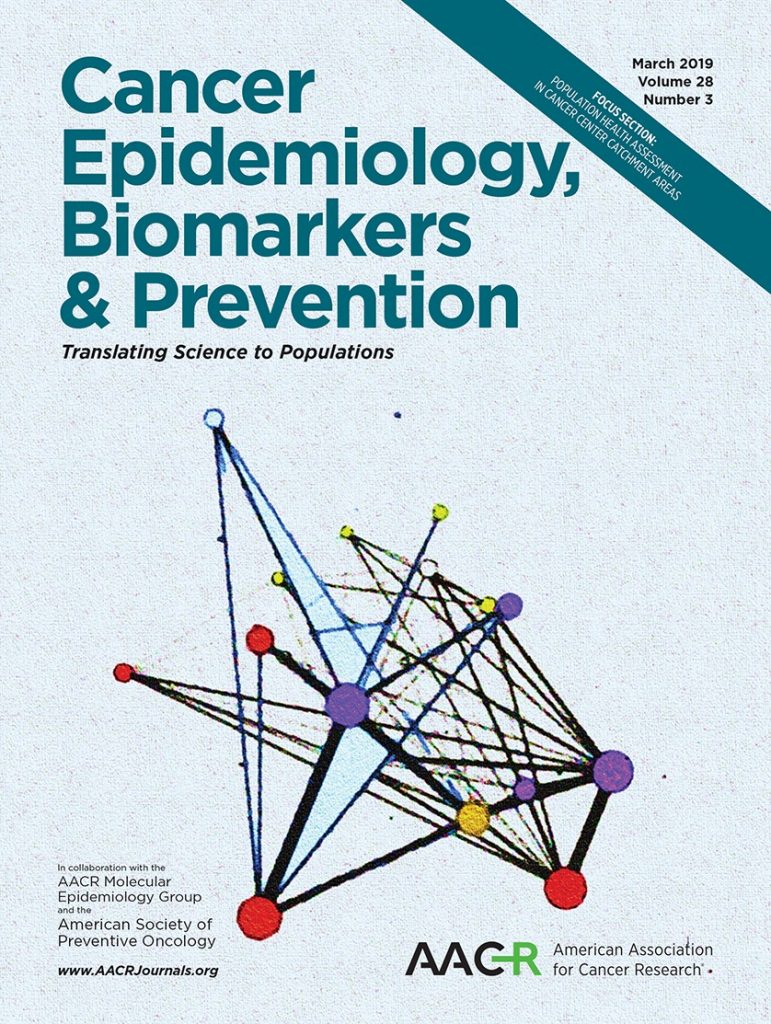
Moen EL, Kapadia NS, O’Malley AJ, Onega T. Evaluating breast cancer care coordination at a rural National Cancer Institute Comprehensive Cancer Center using network analysis and geospatial methods. Cancer Epidemiol Biomarkers Prev. 2019; 28 (3): 455-61. http://cebp.aacrjournals.org/content/28/3/455.long
Summary: Physician patient-sharing networks offer a novel lens through which to study cancer care coordination. In this work, we analyzed electronic health record data from breast cancer patients in the Dartmouth-Hitchcock health system to examine associations between network-based measures of care coordination and geospatial factors. We found that greater travel burden and lower geographic dispersion of care were positively associated with care density, a network-based measure of care coordination, in a largely rural population. This study was featured on the cover of Cancer Epidemiology, Biomarkers & Prevention Focus Issue on Population Health Assessment in Cancer Center Catchment Areas in March 2019.
Public health relevance: Identifying cancer patients at higher risk of receiving less coordinated care may help guide initiatives and allocate resources to improve care quality and patient outcomes.